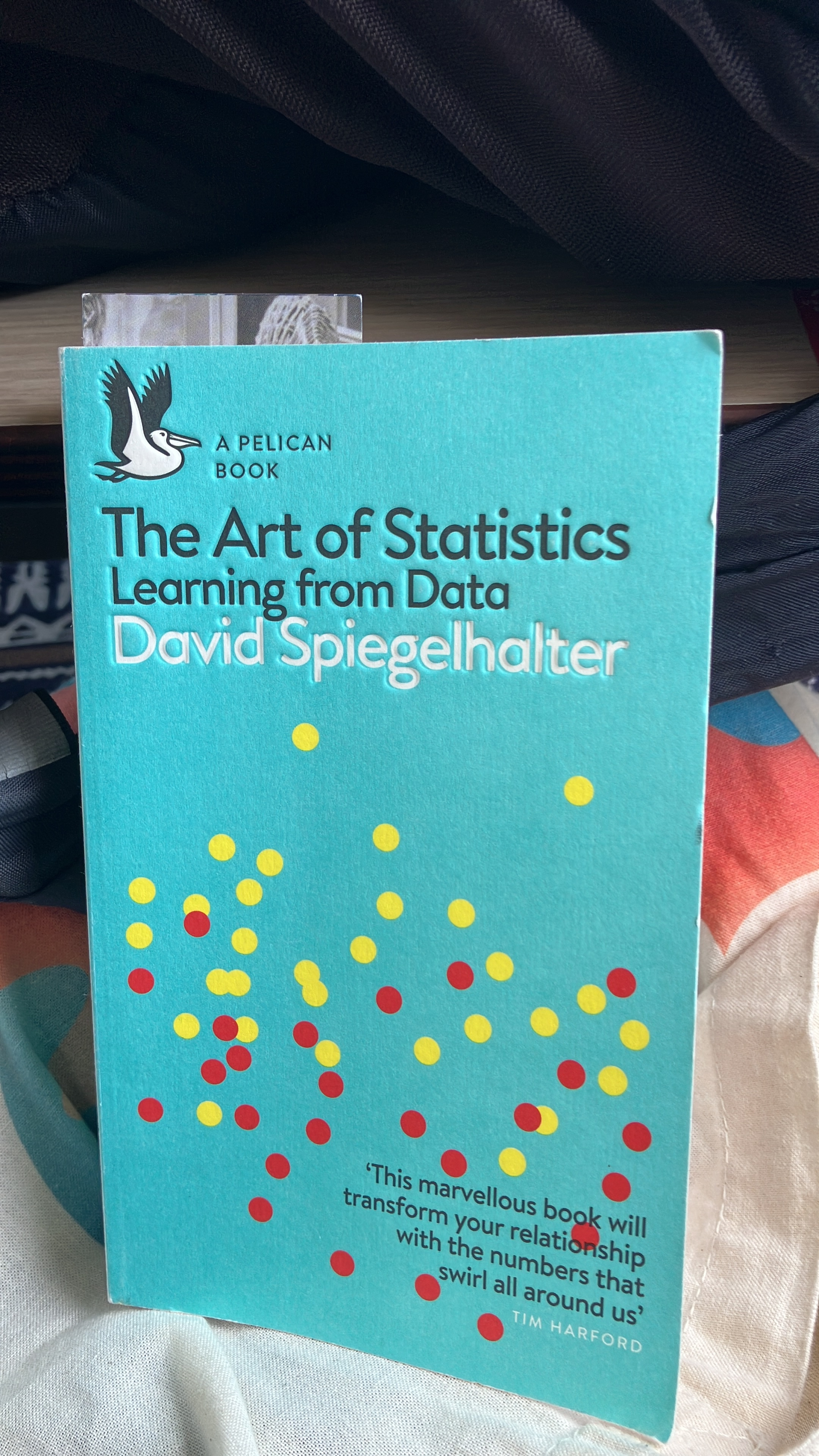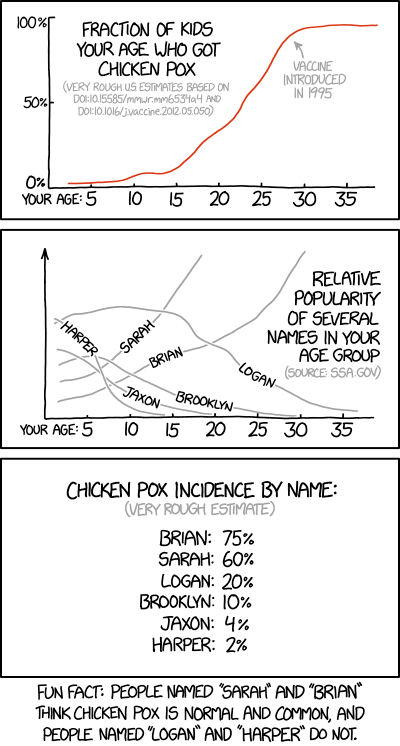The Art of Statistics. Learning from Data by David Spiegelhalter
August 22, 2025
The Art of Statistics was first recommended to me by my friend Matteo B. when I visited him in Boston last May. So, I came back from the trip and did what any millennial would do: I ordered myself a paperback copy with a cuter cover.

The Author
David Spiegelhalter is a professor at the University of Cambridge in Statistics. He worked in several areas of statistics, from its use in clinical trials, software, and more math-stuff. He’s also known for his effort in public outreach via his non-technical books. He may be into true crime ‘cause of his collaboration on the paper on the many murders of physician Harold Shipman. Lastly, he’s into Bayesian stuff, honestly, such a green flag! Anyway, here’s his website, and professor one. For anything else, Google’s got your back, I’m not linking the wiki page.
The Book
The introduction of this book immediately sets the tone: right after the heading “Why We Need Statistics” comes:
“Harold Shipman was Britain’s most prolific convicted murderer.”
Ok, I see what you’re doing here, I’m all in for it.
Across fourteen chapters, Spiegelhalter covers various topics in statistics and the art of extracting information from data. From the basics to more state-of-the-art topics, the book provides theoretical concepts made understandable through reasoning and real-world examples.
Without assuming prior (wink, you see I like Bayes?) knowledge, the reader’s attention will be guided to matters that often go overlooked in everyday life (e.g., what “50% chance of rain” means in weather forecasting, or “the national unemployment rates are…” reported in the latest news). These are the results of statistical analysis and data interpretations, which are instead taken as facts. Spiegelhalter stresses key concepts such as prediction, statistical model, model error, etc., in a simple and approachable way that can be beneficial for everyone, with or without a scientific background.
The book was first published in 2019, right before the COVID-19 pandemic. That pandemic has shown us how tricky data interpretation and communication can be. “Big data” and “data science” have become ubiquitous terms nowadays; hence, a basic grasp of statistics has never been more essential. So, go and read it!

Things I liked
It’s a great book! Full of trivia you can casually drop into your next social dinner:
-
- Who was the luckiest passenger on the Titanic?
- Is screening for ovarian cancer beneficial?
- Is prayer effective?
- How popular has my name been over time?
- How many sexual partners have people in Britain really had?
Also, some quotes:
The British statistician George Box has become famous for his brief but invaluable aphorism: ‘All models are wrong, some are useful.’ This pithy statement was based on a lifetime spent bringing statistical expertise to industrial processes, which led Box to appreciate both the power of models, but also the danger of actually starting to believe in them too much.
Bayes' legacy is the fundamental insight that the data does not speak for itself – our external knowledge, and even our judgement, has a central role.
More Info
I found some videos of the author presenting the same topics, here’s a list: